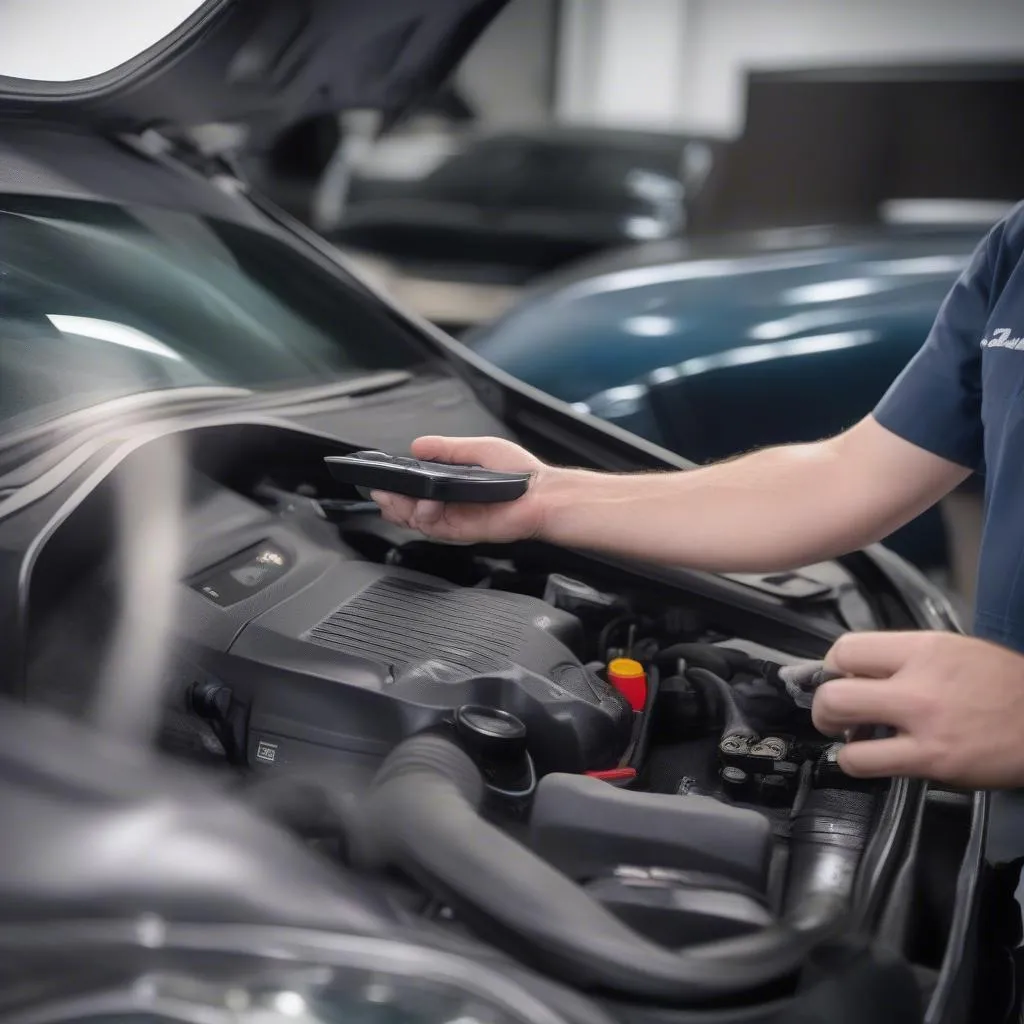BMW N55 Issues: A Comprehensive Guide for Owners
Have you ever experienced a sudden loss of power in your BMW with the N55 engine? Or maybe you’ve noticed a persistent engine light that just won’t go away? If you’re facing any of these issues, you’re not alone. The BMW N55 engine, while renowned for its performance, has its fair share of common problems that can leave you frustrated and stranded. But don’t worry, we’re here to guide you through the intricacies of the N55 and equip you with the knowledge to tackle these challenges head-on.
Understanding the BMW N55 Engine
The N55 is a 3.0-liter turbocharged inline-six engine that BMW has been using in various models since 2009. This engine is known for its smooth power delivery, impressive performance, and relatively good fuel economy. However, like any complex piece of machinery, the N55 has some common issues that owners should be aware of.
What are the Common BMW N55 Issues?
High Pressure Fuel Pump (HPFP)
The HPFP is a crucial component that pumps fuel at high pressure to the injectors. A failing HPFP can lead to various problems, such as misfires, rough idling, and even engine failure.
Expert Tip from Dr. David Parker, renowned automotive engineer: “The HPFP is often the culprit behind N55 engine issues. If you suspect a faulty HPFP, it’s essential to have it diagnosed by a qualified mechanic promptly.”
Symptoms of HPFP Failure:
- Engine misfires
- Rough idling
- Loss of power
- Check engine light
- Reduced fuel efficiency
Common Causes of HPFP Failure:
- Worn out HPFP components
- Low fuel pressure
- Improper installation
Wastegate Actuator
The wastegate actuator controls the exhaust gas flow to the turbine, which regulates boost pressure. A faulty wastegate actuator can lead to excessive boost pressure, causing damage to the turbocharger or other engine components.
Symptoms of Wastegate Actuator Failure:
- Loss of power
- Engine light
- Turbocharger noise
- Smoke from the exhaust
Common Causes of Wastegate Actuator Failure:
- Carbon buildup
- Mechanical failure
- Electrical issues
Intake Manifold
The N55 engine uses a plastic intake manifold that can crack or warp over time, especially under high temperatures.
Symptoms of Intake Manifold Failure:
- Engine misfires
- Rough idling
- Vacuum leak
Common Causes of Intake Manifold Failure:
- Heat stress
- Improper installation
- Age
Oil Consumption
Some N55 engines are known for excessive oil consumption, primarily due to problems with the piston rings or valve stem seals.
Symptoms of Oil Consumption:
- Low oil level
- Blue smoke from the exhaust
- Oil residue in the spark plug wells
Common Causes of Oil Consumption:
- Worn out piston rings
- Damaged valve stem seals
- Excessive blowby
Other Common Issues:
- Turbocharger failure: The turbocharger is a complex component that can experience issues like bearing failure or impeller damage.
- Coolant leak: Coolant leaks can lead to overheating and engine damage.
- Spark plug failure: Faulty spark plugs can cause misfires and engine performance issues.
How to Diagnose BMW N55 Problems
The best way to diagnose N55 issues is to use a diagnostic scanner specifically designed for European cars. A dealer scanner can read the fault codes stored in the engine control unit (ECU), providing valuable insights into the problem. This information helps mechanics understand the root cause of the issue and repair it effectively.
 bmw-n55-diagnostics-scanner
bmw-n55-diagnostics-scanner
FAQs about BMW N55 Issues
Here are some frequently asked questions about Bmw N55 Issues:
1. How can I prevent N55 engine problems?
- Regular maintenance: Following the manufacturer’s recommended maintenance schedule is essential for keeping your N55 engine running smoothly. This includes oil changes, air filter replacements, and coolant flushes.
- High-quality fuel: Using high-quality fuel can help prevent fuel system problems.
- Driving style: Avoid aggressive driving, as it can put extra stress on the engine.
- Avoid short trips: Short trips can cause condensation to build up in the exhaust system, which can lead to carbon buildup.
- Check for recalls: Stay informed about any recalls related to the N55 engine.
2. What should I do if I experience N55 engine problems?
- Consult a qualified mechanic: It’s crucial to have any N55 engine problems diagnosed and repaired by a qualified mechanic who has experience with BMW vehicles.
- Get a second opinion: If you’re unsure about a diagnosis, it’s always a good idea to get a second opinion from another mechanic.
3. How much does it cost to fix N55 engine problems?
The cost of fixing N55 engine problems can vary widely depending on the severity of the issue and the mechanic you choose. Some repairs can be relatively minor and inexpensive, while others can be very costly.
4. Is it worth fixing N55 engine problems?
Whether or not it’s worth fixing N55 engine problems depends on several factors, such as the age of the vehicle, the severity of the issue, and the overall value of the car. In some cases, it might be more cost-effective to replace the engine or sell the vehicle altogether.
5. What are some alternative engines to the N55?
If you’re considering a BMW with a different engine, some popular alternatives to the N55 include the N20 (a 2.0-liter turbocharged four-cylinder engine) and the N63 (a twin-turbocharged V8 engine).
Tips for Avoiding N55 Problems
- Use high-quality oil and filter: Stick to the oil type and viscosity specified by BMW for your N55 engine.
- Regular oil changes: Change your oil every 5,000-7,500 miles or according to BMW’s recommended schedule.
- Avoid harsh driving conditions: Minimize time spent in heavy traffic or extreme temperatures.
- Monitor coolant levels: Regularly check your coolant levels and top them off as needed.
- Inspect hoses and belts: Visually inspect hoses and belts for cracks, leaks, or signs of wear.
- Consider using a catch can: A catch can can help prevent oil from entering the intake manifold.
Getting Help with BMW N55 Issues
If you’re experiencing N55 engine problems, it’s important to seek help from a qualified mechanic who has experience with BMW vehicles. A dealer scanner is an essential tool for diagnosing N55 issues, and a mechanic with the right expertise can pinpoint the root cause and make the necessary repairs.
Need help with your BMW N55 engine? We’re here to help!
Contact us at +84767531508 for 24/7 support. Our team of automotive experts is ready to assist you with any questions you may have about N55 engine issues. We offer comprehensive diagnostics, repairs, and maintenance services for BMWs. Let us help you keep your N55 engine running smoothly for years to come!
 bmw-n55-engine-repair
bmw-n55-engine-repair
Related articles:
- BMW N55 Head
- 2011 BMW 335i Twin Turbo
- BMW Wastegate Actuator
- BMW M235i xDrive for Sale
- Best BMW 335i Year
Don’t hesitate to share your own experiences with the N55 engine in the comments below! We’re here to create a community of BMW owners who can learn from each other and share valuable insights.
